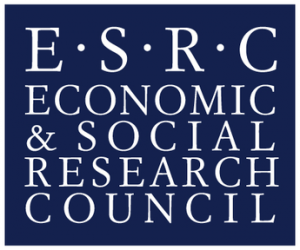How do governance processes and practices in colleges of further education (FE) in the UK respond to and reshape the political and policy imperatives within which they are located? This is the focus of a study of the Processes and Practices of Governing in Further Education (FE) colleges, which examines the activities, discourses, materials, and relationships that collectively constitute college governing across the four nations of the UK, funded by the ESRC. As fieldwork begins in two English colleges involved in the study, I draw out some of the key themes that mark the current climate in further education in England.
The current FE landscape in England is a contradictory space. Often overlooked and forgotten, FE has been rediscovered by politicians and is the subject of renewed attention, positioned as the sector that holds the keys to improving England’s skills base and tackling low productivity, and stagnating pay and living standards. The notion of a Fourth Industrial Revolution is the basis for claims that there are, and will be, major reforms to the availability and nature of jobs, which create both opportunities and unknowns. Considerable political effort is currently being devoted to yet another set of reforms to technical and vocational education in order to respond to perceived skills deficits and future skills requirements. In the 2017 Industrial Strategy, the Conservative Government proposed reforms to technical education through the introduction of T Levels and the development of a National Retraining Scheme to support people to re-skill throughout their working lives. High-profile apprenticeship reforms and targets have also been in play since 2015 and The Department for Education (DfE) is currently running a pilot to test innovative flexible learning options for adults.
Whether or not all this policy activity amounts to any real change is moot, but it does mean that FE is currently configured as a high-profile and busy policy space: a space of testing, innovation, and reform. Yet FE budgets have faced huge cuts since 2009, and there are significant funding disparities between FE and other educational sectors. Data used by the Economic Affairs Committee shows that the 2017/18 budget for higher education is £8 billion more than for FE, even though the FE sector has over double the number of students. Research by the Institute for Fiscal Studies shows that total funding for adult education and apprenticeships fell by 45% in real terms between 2009-10 and 2017-18. Funding has also shifted towards different priorities. Whilst the overall 19+ budget has fallen since 2009-10, spending on apprenticeships has increased from 13% of the budget in 2010 to 36% in 2018. Meanwhile the number of adults taking basic skills qualifications at below Level 2 has reduced. Against this backdrop of unequal funding compared with other sectors of education, and a reduction in funding, it is perhaps not surprising that the FE sector regularly reports on colleges in financial difficulty. The FE area reviews, which intended to create fewer, more cost-effective providers, have seen high-profile mergers between colleges. The resultant picture is of large institutions, which educate substantial numbers of people from a widely dispersed ‘local’ area, facing an increasingly difficult financial environment.
The current policy focus on reforming first level 3 technical education, and now higher level technical education, increasingly dominates government commentary and the FE sector press at a time when the diverse work that colleges engage in continues to be poorly understood in comparison to other educational sectors. FE remains the only opportunity for many of the most disadvantaged people in England to access basic skills, technical training, and higher education. The social justice work of FE is a very important sector narrative, although it does not currently have the policy allure of stories of technical skills revolutions in government and mainstream media discourse.
These wider trends, concerns and tensions are the context in which governing in colleges of further education is taking place. We are aiming to capture and understand how this context is perceived, described, interacted with and reshaped through the practices and processes of governing. In particular, how does the contradictory social and political context of FE feature in governance talk, practices, materials, strategies and relationships? The ‘home international’ comparative nature of this project means we will also examine differences and convergences across the four UK nations, with their devolved, and historically distinct, education systems. To what extent are similar contradictions, tensions and narratives to those described here also present in the FE contexts and governing practices in Wales, Scotland and Northern Ireland? These are all questions we will grapple with over the life of the project.
Dr Jodie Pennacchia
Research Fellow, Processes and Practices of Governing
The University of Birmingham
Further Links
Please find our FE news updates here: https://fe-governing.stir.ac.uk/fe-news/



